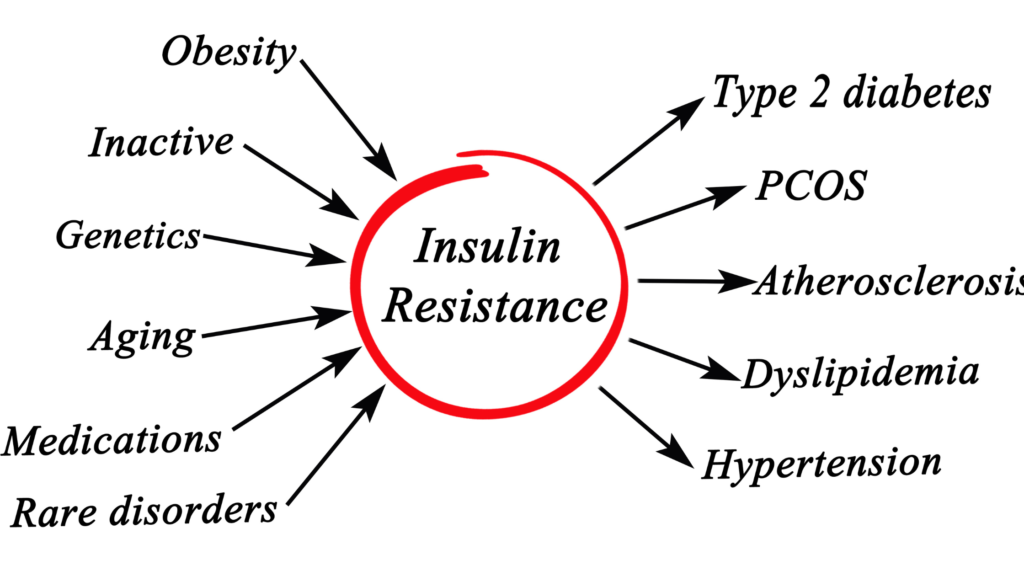
Insulin resistance is a condition in which the body’s cells do not respond effectively to the hormone insulin. Insulin is produced by the pancreas and plays a crucial role in regulating blood sugar (glucose) levels. It helps to transport glucose from the bloodstream into cells, where it can be used for energy or stored for future use. When cells become resistant to insulin, they do not take in glucose as efficiently as they should, leading to elevated levels of glucose in the blood.
Several factors can contribute to insulin resistance, including:
- Genetics: Some individuals may be genetically predisposed to insulin resistance.
- Obesity: Excess fat, particularly around the abdomen, is strongly associated with insulin resistance.
- Lack of physical activity: A sedentary lifestyle can contribute to insulin resistance.
- Poor diet: Consuming a diet high in refined carbohydrates, sugars, and unhealthy fats can increase the risk of insulin resistance.
- Metabolic syndrome: This condition, characterized by a combination of factors like high blood pressure, high blood sugar, and abnormal lipid profiles, is often linked to insulin resistance.
- Polycystic ovary syndrome (PCOS): Women with PCOS are at an increased risk of insulin resistance.
Certain medical conditions: Conditions like type 2 diabetes, fatty liver disease, and acanthosis nigricans (a skin condition) are associated with insulin resistance. - Insulin resistance can lead to elevated blood sugar levels and, if not managed, can progress to prediabetes or type 2 diabetes. It also increases the risk of other health issues, such as heart disease, hypertension, and certain types of cancer.
Management and prevention of insulin resistance typically involve lifestyle changes such as maintaining a healthy weight, engaging in regular physical activity, and following a balanced diet. In some cases, medication may be prescribed by a healthcare provider to help improve insulin sensitivity. If you suspect you have insulin resistance or are at risk, it’s essential to consult a healthcare professional for proper evaluation and guidance.
